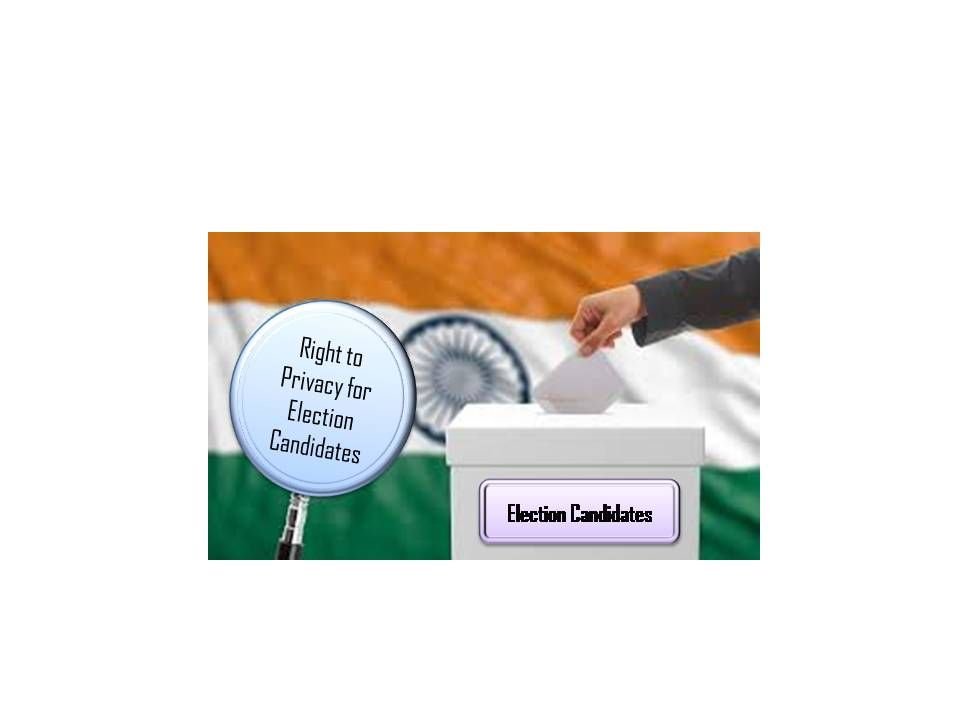Right to Privacy for Election Candidates: In recent years, the issue of candidates’ right to privacy in elections has garnered significant attention, particularly in light of a recent judgment by the Supreme Court of India. This ruling has brought to the forefront the delicate balance between candidates’ privacy rights and the transparency necessary for a fair electoral process.
Supreme Court’s Ruling
In a recent judgment, the Supreme Court of India has addressed the issue of candidates contesting elections and their obligation to declare all movable assets they possess.
The Court has underscored that candidates also have a right to privacy, which shields them from the necessity of revealing every detail of their lives to the voters.
According to the ruling, candidates are not obligated to lay bare every movable asset they own, marking a significant development in upholding candidates’ privacy rights in the electoral process.
Key Facts About the Case
The Supreme Court (SC) was reviewing a petition brought forth by an MLA from Arunachal Pradesh. This petition contested a 2023 judgment from the Guwahati High Court, which deemed the MLA’s election invalid due to his failure to declare three vehicles as assets in his affidavit, as required by the Conduct of Election Rules, 1961.
Allegation of Corrupt Practice
The petition argued that the candidate violated Section 123 of the Representation of the People Act (RPA), 1951, which defines corrupt practices, by not disclosing ownership of the mentioned vehicles.
Supreme Court’s Finding
The SC ruled that a candidate’s decision to maintain privacy regarding matters irrelevant to the voters or unrelated to their candidacy for public office doesn’t constitute a “corrupt practice” under Section 123 of the RPA, 1951.
Non-Disclosure and Substantial Defects
Furthermore, the court clarified that such non-disclosure does not qualify as a “defect of a substantial nature” under Section 36(4) of the 1951 Act.
Voters’ Right to Information
However, the court emphasized that voters do have the right to access information necessary for making an informed decision about which candidate to support.
the Right to Privacy
The right to privacy is a basic right that shields individuals from interference in their personal lives by both the government and other individuals. It allows people to make their own decisions without unwanted intrusion.
K.S. Puttaswamy vs Union of India
In a significant case in 2017, K.S. Puttaswamy vs Union of India, the Supreme Court declared privacy as a fundamental and unalienable right. It covers all information about a person and the choices they make.
Privacy is upheld as a crucial component of the right to life and personal liberty as enshrined in Article 21 of the Constitution.
Representation of the People Act (RPA) of 1951
The Representation of the People Act (RPA) of 1951 regulates how elections are conducted and the rules for who can and cannot be elected as representatives.
It governs the conduct of elections, including setting out the qualifications and disqualifications for those seeking to become members of parliament or legislative bodies. It also includes measures to tackle corrupt practices and other offenses related to elections.
It regulates how elections are run, outlines who can and cannot run for office, and includes rules to prevent corruption. It also provides a process for resolving disputes that arise during elections.
Key Point in the Act:
Section 36(4) of the Act states that nomination papers cannot be rejected by the returning officer for minor defects that are not considered significant.
Corrupt Practices under RPA, 1951: Section 123 of the Act outlines what constitutes ‘corrupt practices.’ This includes bribery, exerting undue influence, spreading false information, and inciting hatred among different groups based on religion, race, caste, etc., to gain an advantage in elections.
Key Ruling: In the Abhiram Singh versus C. D. Commachen Case (2017), the Supreme Court clarified that candidates cannot appeal for votes based on their own religion or that of the voters.
Undue Influence: Undue influence, as defined in the Act, involves any direct or indirect interference, including threats, that obstructs the free exercise of electoral rights.
Disqualification: Section 123(4) allows for the disqualification of elected representatives for various offenses, including corrupt practices, failure to declare election expenses, or having interests in government contracts or works.
Importance of the Act
The Representation of the People Act (RPA), 1951, plays a crucial role in ensuring the smooth functioning of Indian democracy. It prevents individuals with criminal records from entering elected bodies, thereby promoting cleaner politics.
Declaration of Assets and Expenses
The Act mandates that every candidate discloses their assets and expenses during elections. This promotes accountability and transparency in how public funds are utilized.
Prevention of Corrupt Practices
The Act prohibits corrupt activities like booth capturing, bribery, and inciting enmity. This ensures that elections are conducted fairly and legitimately.
Electoral Funding Transparency
Only political parties registered under Section 29A of the RPA, 1951, allowed to receive electoral bonds. This measure aims to enhance transparency in electoral funding processes.

























